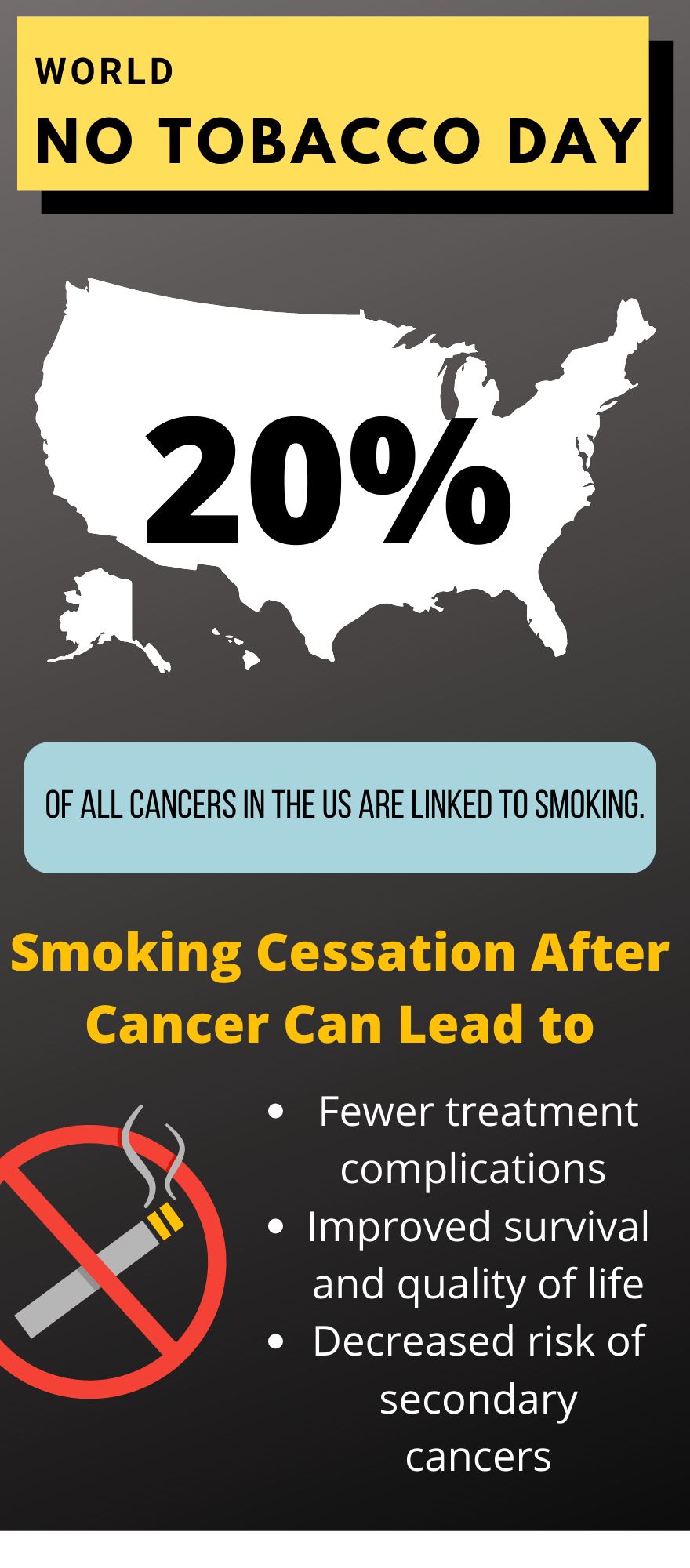World No Tobacco Day: Help Your Patients Quit
Smoking cessation has major benefits – even after a patient received a diagnosis of cancer.

May 31 is the World Health Organization’s (WHO) World No Tobacco Day, and while smoking rates have been decreasing in the United States, smoking still causes about 20% of all cancers and about 30% of all cancer-related deaths, according to the American Cancer Society.1
Even after a person is diagnosed with cancer, smoking cessation can still have major health and quality of life benefits. The World No Tobacco Day’s 2021 theme is “Commit to Quit,” and for patients diagnosed with cancer, oncology nurses can be crucial in helping people stop the habit for good.
First, nurses must convince patients that there will be benefits from quitting smoking, even though the person already has cancer.
“Smoking cessation significantly reduces the risk of developing tobacco-related malignancies, but the benefits of smoking abstinence after a cancer diagnosis are undervalued,” wrote Jacek Jassem, MD, PhD, professor of clinical oncology and radiotherapy and the head of the Department of Oncology and Radiotherapy at the Medical University of Gdansk, Poland, in a study published in Translational Lung Cancer Research.2
Jacek wrote that continued smoking after a cancer diagnosis can lead to increased risk of secondary cancers or postoperative complications. It can also reduce radiation and systemic therapy’s effectiveness. Not to mention, smoking increases chance of death and decreases overall quality of life in patients with cancer.
In honor of World No Tobacco Day, the WHO published a smoking cessation toolkit that nurses can use to help their patients quit.
“Enhances focus on smoking cessation, and its active promotion, may increase patients’ motivation to quit. There is a sore need of addressing tobacco use in patients with cancer,” Jacek wrote.
“All patients should be screened for tobacco use and advised on the benefits of tobacco cessation. In patients who continue smoking after diagnosis of cancer, evidence-based tobacco cessation assistance should be integrated into multidisciplinary cancer care.”
References
1. American Cancer Society. Health Risks of Smoking Tobacco. https://www.cancer.org/healthy/stay-away-from-tobacco/health-risks-of-tobacco/health-risks-of-smoking-tobacco.html Updated October 28, 2020. Accessed May 26, 2021
2. Jassem J. Tobacco smoking after diagnosis of cancer: clinical aspects. 2019 May. Translational Lung Cancer Research. doi: 10.21037/tlcr.2019.04.01



